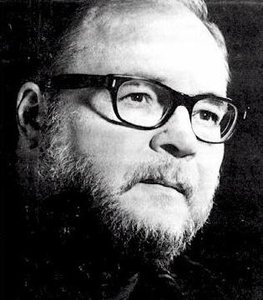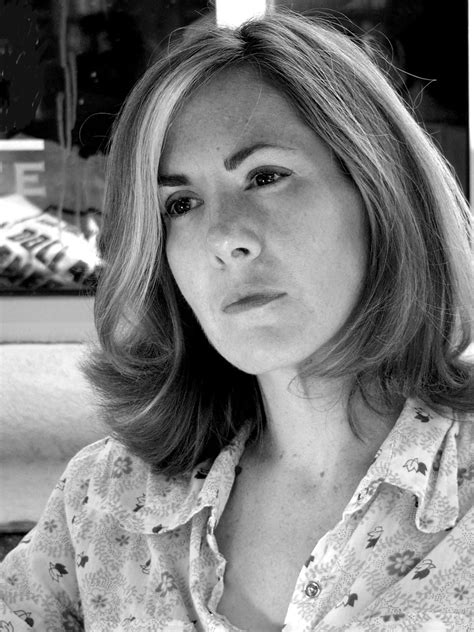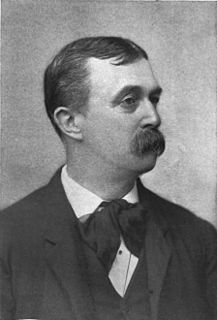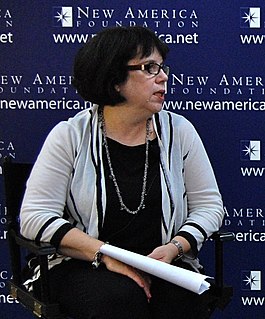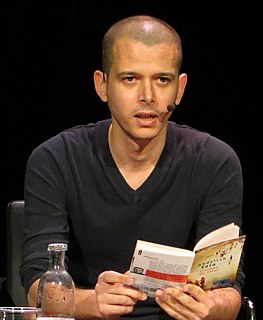Top 222 Journals Quotes & Sayings - Page 4
Explore popular Journals quotes.
Last updated on April 16, 2025.
Thoughts are created in the act of writing. [It is a myth that] you must have something to say in order to write. Reality: You often need to write in order to have anything to say. Thought comes with writing, and writing may never come if it is postponed until we are satisfied that we have something to say...The assertion of write first, see what you had to say later applies to all manifestations of written language, to letters...as well as to diaries and journals
The difference between our collective generation and your generation (differentiating the reporters from the students) is that we poured our souls out on paper that got easily yellowed and lost. The danger is that many of your friends (nodding at the students) are putting intimate ideas in cyberspace journals. So when today's 15-year-old is 40, some friend is going to drag out all of that idiotic stuff at their class reunion.
The great philosophers of the past who wrote so beautifully - Rousseau, John Stuart Mill - had to write beautifully because they had to sell their work to journals. They had to sell books to the general public because they could not hold positions in universities. Mill was an atheist, and, therefore, could not hold a position in a university.
In life, you gotta do something. And the medical journals keep on saying if you've got a goal or some passion in life, you'll outlive all the other guys who - the bank manager that retired. They gave him a rocking chair and he rocked himself to death. So you gotta have a passion, whatever it happens to be. Whether it's this or something else, it doesn't matter, as long as it's a reason to get out of bed every morning, as my accountant of 50 years keeps on saying.
I promise that if you will keep your journals and records, they will indeed be a source of great inspiration to your families, to your children, your grandchildren, and others, on through the generations. Each of us is important to those who are near and dear to us and as our posterity reads of our life's experiences, they, too, will come to know and love us. And in that glorious day when our families are together in the eternities, we will already be acquainted.
We'll choose knowledge no matter what, we'll maim ourselves in the process, we'll stick our hands into the flames for it if necessary. Curiosity is not our only motive; love or grief or despair or hatred is what drives us on. We'll spy relentlessly on the dead; we'll open their letters, we'll read their journals, we'll go through their trash, hoping for a hint, a final word, an explanation, from those who have deserted us--who've left us holding the bag, which is often a good deal emptier than we'd supposed.
My father, Benjamin Shiller, told me not to believe in authorities or celebrities - that society tends to imagine them as superhuman. It's good advice. People are snowed by celebrities all the time. In academia people have this idea of achieving stardom - publishing in the best journals, being at the best university, writing on the hot topic everyone else is writing about. But that's what my father told me not to do. He taught me that you have to pursue things that sound right to you.
The amplification of our diverse literary voices is a political act of resistance. Our lives are important, too. Our lives should be represented in our literature. And that literature is vital, compelling, and accessible. That literature deserves to be disseminated and noticed and available. And with respect to the dissemination and promotion of diverse voices - librarians, educators, and editors of literary journals play such an important role. They deserve not only a hearty shout out, but also our thanks and support.
I wrote an article about the marine landing [in Haiti] right away, but barely mentioned the oil, because my article would come out two months later and I assumed by then, "of course, everybody knows." Nobody knew. There was a news report in the Wall Street Journal, in the petroleum journals, and in some small newspapers, but not in the mainstream press.
Even those who specialize in the history of philosophy often ignore the political and cultural context, and the natural world in which their philosophers were philosophizing. This has consequences both trivial and important. If you systematically read the last fifty years of the major journals in our discipline you would be amazed at the amount of redundancy. Most of this is unacknowledged because most of us know so little about the history of our discipline and even the subfields in which we work.
If you go off into general-interest magazines, often women are being shoved aside into various ghettos that perpetuate the problem. Women's interests are specialized, they're secondary; they're somewhere over to the side of the serious work that's being done. Throughout history, there have been ladies' magazines, ladies' journals, and for years there have been women writers who would refuse to participate in women-only sort projects because of that stigma.
People like me start organizing conferences and editing journals, even become tenured professors talking about Empire of the Senseless with a bunch of wide-eyed kids from the farmland. If only one of those kids goes back home and lets her hogs out of the pen to go plum wild rolling around in their own slop while the neighboring farmers scratch their chins, then, isn't that worth it? Insert the same scenario with stockbrokers, stock-car drivers, and stock characters in the post-baccalaureate working man's sideshow, and well, that's viral reproduction.
I wanted to make a record with a twist. I wanted to prove that you could make a record that concentrated on song craft but that was still fun, something you could listen to and love and even dance to, but not hate yourself in the morning. I think I did that. Most of my lyrics come from my own personal journals that I have kept over the years.
The battle over the validity of evolution has been publicly posed as a scientific one. However, you will find little sign of it in scientific journals, where such quarrels as exist are over details, not the basic concept... Evolution has proved so useful as a paradigm for the origin and structure of life that it constitutes the foundation of the sciences of biology and medicine.
And the most interesting natural structure? A giant, two-thousand-mile-long fish in orbit around Jupiter, according to a reliable report in the Weekly World News. The photograph was very convincing, and I'm only surprised that more-reputable journals like New Scientist, or even just The Sun, haven't followed up with more details. We should be told.
May I suggest that you write, that you keep journals, that you express your thoughts on paper. Writing is a great discipline. It is a tremendous educational effort. It will assist you in various ways, and you will bless the lives of many-your families and others-now and in the years to come, as you put on paper some of your experiences and some of your musings.
But like all power, there are those who want to keep it for themselves. The world's entire scientific and cultural heritage, published over centuries in books and journals, is increasingly being digitized and locked up by a handful of private corporations. Want to read the papers featuring the most famous results of the sciences? You'll need to send enormous amounts to publishers like Reed Elsevier.
I don't think people ought to believe only one news medium. They ought to read and they ought to go to opinion journals and all the rest of it. I think it's terribly important that this be taught in the public schools, because otherwise, we're gonna get to a situation because of economic pressures and other things where television's all you've got left. And that would be disastrous. We can't cover the news in a half-hour event evening. That's ridiculous.
Found one of my old journals. from right around the time we were heading out on tour with NFG in the UK early 2008. i started reading it and couldn't help but cry a little bit. cause that person was really confused. and very lost. and as it went on, the person behind the pen seemed to get a little bit stronger.. that part felt good. it was the reminder that i needed that right now i'm as strong as ever. there really isn't a point to telling you all of this. except maybe i want to thank you. cause you are a constant reminder. that i'm not as lost as i once was.
So long as the mental and moral instruction of man is left solely in the hands of hired servants of the public--let them be teachers of religion, professors of colleges, authors of books, or editors of journals or periodical publications, dependent upon their literary incomes for their daily bread, so long shall we hear but half the truth; and well if we hear so much. Our teachers, political, scientific, moral, or religious; our writers, grave or gay, are compelled to administer to our prejudices and to perpetuate our ignorance.
Beyond the Einsteins and Darwins, most scientists don't have chroniclers. Einstein and Darwin were geniuses - that helps. Many scientists do amazing stuff, but it just disappears into footnotes and dusty medical journals. If I were masochistic enough, I could spend the rest of my life rescuing scientists. Most of them aren't natural self-promoters.
I have always been intrigued by the journals that girls keep. They are like dollhouses. Once you look inside them, the rest of the world seems very far away, even unbelievable. If only we had the power to keep outside ourselves at such moments, we would spare ourselves so much pain and fear. I'm not talking about truth or falsehood but about surviving.
LSD was my "wonder child", we had a positive reaction from everywhere in the world. Around two thousand publications about it appeared in scientific journals and everything was fine. Then, at the beginning of the 1960s, here in the United States, LSD became a drug of abuse. In a short time, this wave of popular use swept the country and it became "drug number one". It was then used without caution and people were not prepared and informed about its deep effects. Instead of a "wonder child", LSD suddenly became my "problem child".
A principal aim of education is to give students a taste for literature, for the books of life and power, and to accomplish this, it is necessary that their minds be held aloof from the babblement and discussions of the hour, that they may accustom themselves to take interest in the words and deeds of the greatest men, and so make themselves able and worthy to shape a larger and nobler future; but if their hours of leisure are spent over journals and reviews, they will, in later years, become the helpless victims of the newspaper habit.
I suspect that the peer-review system carries a good part of blame for the fact that something like sixty percent or more of journal articles are never quoted (which means leaving no trace on our joint scholarly pursuits), and (in my reception at any rate) the "learned journals" (with a few miraculous exceptions that entail, prominently, TCS) ooze monumental boredom.
I am obsessed by the idea of silence. I went through an entire library studying art, artists and their critics, philosophers, too, on the meaning and significance of the color white. I dreamed of white birds and white bears. I thought about the white pages of my mother's journals. I became enthralled with John Cage and his work, 4'33”, his masterpiece of ambient sound. Rauschenberg, too. And then at some point I let go. What sticks to the soul is what gets placed on the page. Maybe that's the unknown part, the mystery, the power of the empty page.
We need to take information, wherever it is stored, make our copies and share them with the world. We need to take stuff that's out of copyright and add it to the archive. We need to buy secret databases and put them on the Web. We need to download scientific journals and upload them to file sharing networks... With enough of us, around the world, we’ll not just send a strong message opposing the privatization of knowledge - we’ll make it a thing of the past. Will you join us?
We have a habit in writing articles published in scientific journals to make the work as finished as possible, to cover up all the tracks, to not worry about the blind alleys or describe how you had the wrong idea first, and so on. So there isn't any place to publish, in a dignified manner, what you actually did in order to get to do the work, although, there has been in these days, some interest in this kind of thing.
Amazingly, 85 percent of prescribed standard medical treatments across the board lack scientific validation, according to the New York Times. Richard Smith, editor of the British Medical Journal, suggests that this is partly because only one percent of the articles in medical journals are scientifically sound, and partly because many treatments have never been assessed at all.
I started to write because of my dream to become a filmmaker. I got to know about a film school in Paris and it was my goal to get there. To do that I knew I had to learn French. In order to practice I started to write journals in French. The effort I made to master what I regarded a bad thing - a language owned by the rich Moroccans - brought me the ability to write.
I wish I had read Sacred Pregnancy when I was pregnant instead of the dozen books I had to piece together to try to make sense of it all. Anni Daulter has created what should be the new standard for today's mom: birth journals, labor workbooks, pregnancy memoirs, and holistic wisdom. It is gentle and enlightening, and lays the foundation for what we know helps women have the labor and birth they want and deserve: support, self-knowledge, and empowerment.
A lot of [erotica] was really interestingly disguised in the 19th-century as medical journals. So it would be in the voice of a learned doctor talking about somebody's pathologies. And then it would get really detailed. And then it would get really sweaty. And then you're like, "This isn't a doctor! I would like to see a degree, Mister!"
But it's never just been the journals that have made the difference, I don't think. It's also the way the students are with one another . . . the way they talk about books and authors and themselves. Not just their problems, but their passions too. The way they form a little society and discuss whatever matters to them. Books light the fire-whether it's a book that's already written, or an empty journal that needs to be filled in.
I don't keep a diary or a journal. Sometimes I'll send emails to friends and that's a way of recording what I was thinking at any given time. But I've never been a journal keeper. I feel like part of that is because I'm always on deadline. I've been a freelancer my entire career and, at any given time, I have several deadlines for all sorts of things whether it's some magazine piece or ad copywriting or anything. Obviously, people with deadlines keep journals all the time but, for me, the idea of doing more writing is never appealing. It's why I never blog.
I used to fall hard when I was younger, and it occupies a lot of journals and redundant preoccupation and analysis. It is a state in which you are in an overheated fervor of production - of mental production - where you're analyzing everything that happened. And what they said! And how they looked! Did that touch mean something, or not? Everything is sort of endowed with meaning, but you're also hopelessly boring and out of the world.
I want to set up a new standard: ‘scientific journalism.’ If you publish a paper on DNA, you are required, by all the good biological journals, to submit the data that has informed your research—the idea being that people will replicate it, check it, verify it. So this is something that needs to be done for journalism as well. There is an immediate power imbalance, in that readers are unable to verify what they are being told, and that leads to abuse.
From time to time, I'll look back through the personal journals I've scribbled in throughout my life, the keepers of my raw thoughts and emotions. The words poured forth after my dad died, when I went through a divorce, and after I was diagnosed with breast cancer. There are so many what-ifs scribbled on those pages.
I am a buyer of blank books. Kids find it interesting that I would buy a blank book. They say, Twenty-Six dollars for a blank book! Why would you pay that? The reason I pay twenty-six dollars is to challenge myself to find something worth twenty-six dollars to put in there. All my journals are private, but if you ever got hold of one of them, you wouldn't have to look very far to discover it is worth more than twenty-six dollars




